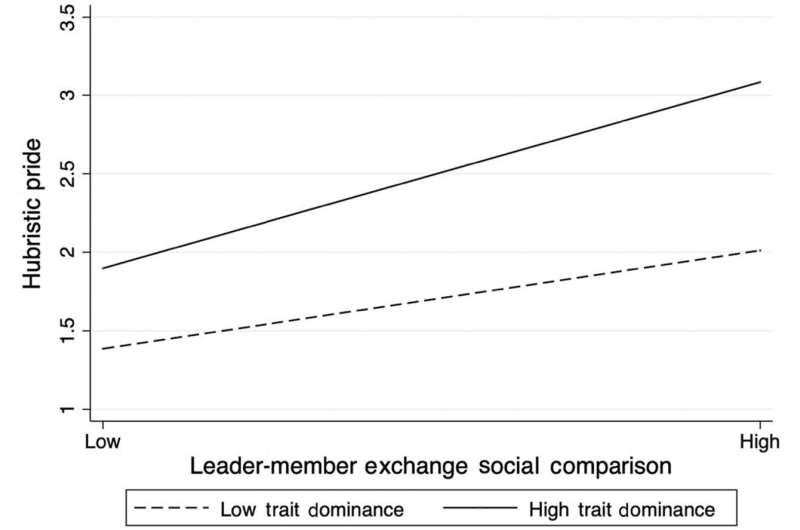This article has been reviewed according to Science X's editorial process and policies. Editors have highlighted the following attributes while ensuring the content's credibility:
fact-checked
peer-reviewed publication
proofread
False pride: When praise from managers makes employees arrogant and a problem for their colleagues

In three online surveys conducted with several hundred participants, the experts looked into how interactions between managers and staff affected employees' behavior towards one another.
"As our findings show, employees who receive better treatment from their supervisor often display arrogant behavior towards their colleagues," summarizes Dr. Benjamin Korman, who now conducts research at the University of Konstanz. "This is especially true when privileged employees are already dominant and want to keep their perceived higher status. In this case, some are even willing to undermine their coworkers."
Since employees tend to compare themselves with others, they could interpret special treatment from their supervisor as being equivalent to having a higher rank. "Managers need to bear in mind that how they treat their employees has an impact on how the employees treat each other," Korman warns.
So, what can managers do to prevent such inequalities in their teams? "They need to appreciate all their employees and, of course, also acknowledge good work when they see it," stresses Christian Tröster, Professor of Leadership and Organizational Behavior at KLU.
"But it depends on how they do it. Managers should only praise someone for specific contributions, especially to their team or the company." This approach, the authors claim, helps employees develop an authentic sense of pride, one that motivates them to deliver better performance without any negative side-effects for their coworkers.
From thought experiment to the real world
As part of the study, the researchers first conducted two thought experiments: Participants read a short fictional story about their work as part of a team. In the story, they either received preferential treatment or were treated exactly the same as their teammates. Then the participants were asked questions on their sense of pride and their conduct towards coworkers, e.g. whether or not they would tend to find fault with their ideas.
In a second experiment, participants were asked to write a text about a time in their life when they either felt superior to others or felt proud of an achievement without feeling superior. As a control, the participants in a third group were asked to describe in writing their typical workday. In this experiment, too, they were then asked questions on their conduct towards their coworkers.
But how do people behave in the real working world? To examine this aspect, the researchers conducted what is known as a diary study with employees from a range of sectors. For two weeks, the participants reported twice a day how they were treated by their manager, how that treatment made them feel, and how they treated their colleagues (e.g., if they criticized them behind their backs or withheld important information from them). This study, published in the Journal of Management Studies, also reinforced their findings.
More information: Benjamin A. Korman et al, LMXSC Elicits Hubristic Pride and Social Undermining in Individuals with High Trait Dominance, Journal of Management Studies (2023). DOI: 10.1111/joms.12983
Journal information: Journal of Management Studies
Provided by Kühne Logistics University





















